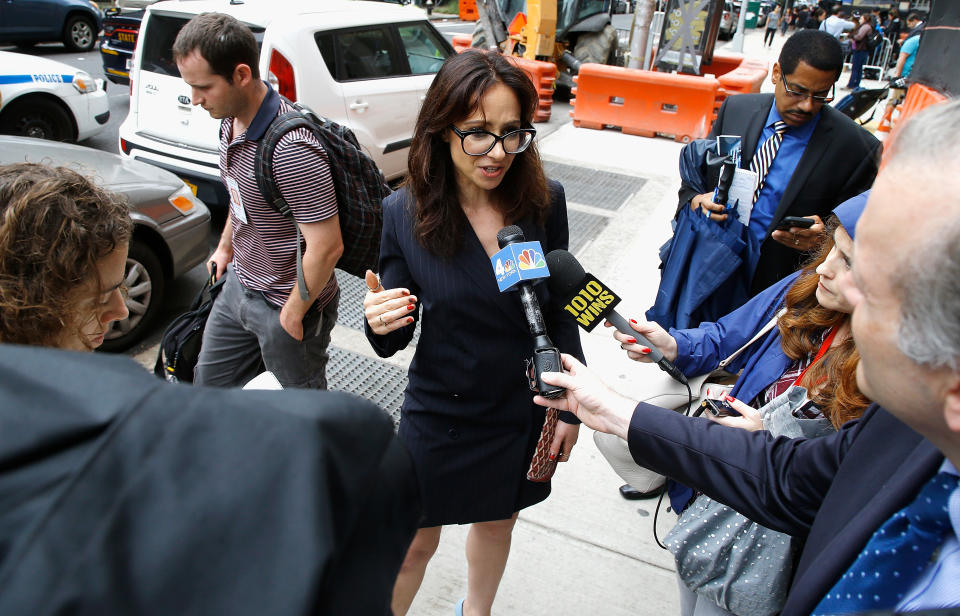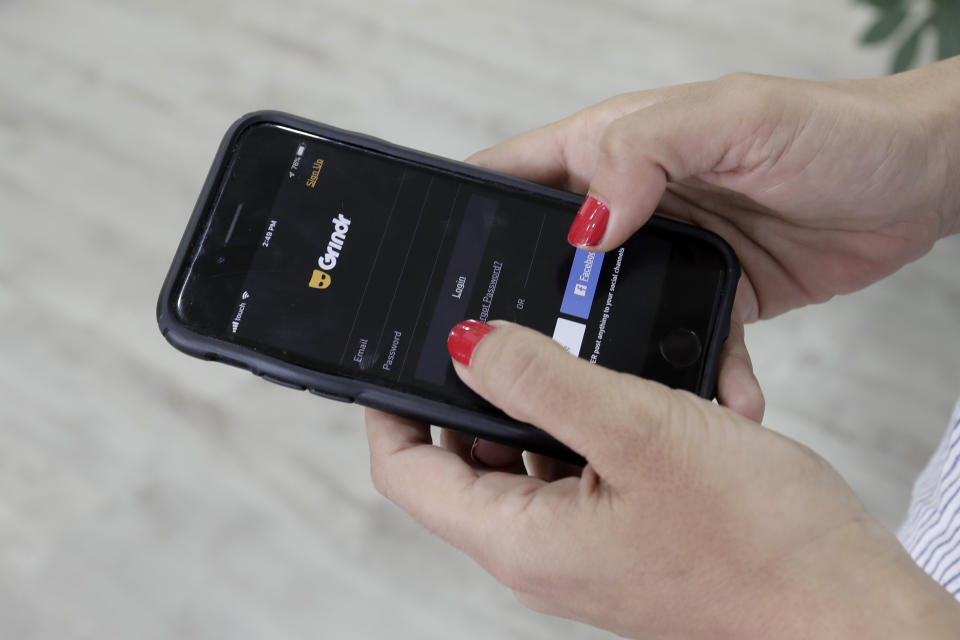Sexual harassment lawyer: 'It’s quite unusual' how perpetrators are able to use Big Tech
In the age of social media, sexual harassment has reached new levels through platforms like Facebook (FB), Twitter (TWTR), and Google (GOOG, GOOGL) — along with dating apps like Grindr and Tinder.
The problem for people victimized by this harassment is that in most of cases, these companies cannot be held liable for any of the abuse that happens of their platforms.
“The issues that I see with my cases and how this really affects the economy is that when a platform — Facebook, Twitter, Google — refuses to take action to help, then they’re protected, and my clients have no recourse, and it’s quite unusual,” Carrie Goldberg, a victim’s rights lawyer and author of “Nobody’s Victim,” said on YFi PM. “There’s an exception that these companies are protected by this law. It’s called Section 230 of the Communications Decency Act.”

According to Section 230, “no provider or user of an interactive computer service can be treated as the publisher or speaker of any information provided by another information content provider.” Critics argue that this means companies can’t be held liable, while defenders of the act says it protects free speech and innovation.
“It’s made it really difficult for somebody who’s being harassed, attacked, impersonated on these platforms to get any help or relief from them,” Goldberg said.
‘Over 1,200 men had come to my client in person’
Goldberg shared a story about one of her clients, a 33-year-old waiter and actor who broke up with his boyfriend. The ex boyfriend then went on to impersonate him on Grindr, a gay dating app.
“The ex directed men to my client’s home and to his job saying that my client had rape fantasies,” she said. “And individuals, strangers to my client, came in person as many as 23 times a day. In person, they would follow him into the bathroom at work. They would be waiting for him in the stairwell in his apartment.”
She continued: “This wasn’t a cyber crime — this was happening to him in person. And so, when he went to report it to the police, which he did 12 times, they told him to handle it like a man. And when he went to an order of protection, that did nothing. There was one entity that was in the exclusive role of being able to help my client: Grindr.”

Unfortunately, a U.S. federal appeals court refused to hold Grindr liable. According to Reuters, “it said Grindr was shielded from liability for exercising ‘a publisher’s traditional editorial functions,’ or providing ‘neutral assistance’ in the form of tools and functionality available equally to bad actors and the app’s intended users.”
“No one disputes that the plaintiff’s situation was unfortunate,” Moez Kaba, a lawyer for Grindr, stated at the time, “but the 2nd Circuit was plainly correct in finding that apps and their owners cannot be liable for this sort of third-party conduct.”
Goldberg asserted that the company “did nothing, and they really have no incentive to. So, when we sued them, they said that they basically didn’t have the technology to exclude an abusive user. By this time, over 1,200 men had come to my client in person.”
‘We are not empowered’
It’s not clear whether or not there will be any type of legislation to weaken Section 230 with opinions sharply divided over its efficacy. The Electronic Frontier Foundation (EFF) describes Section 230 as “one of the most valuable tools for protecting freedom of expression and innovation on the internet.” Many members of the GOP, who often accuse platforms like Twitter of “shadow banning” because of their political beliefs, are in favor of removing Section 230. Some Democratic politicians, meanwhile, oppose Section 230 because they believe removing it would hold more tech companies accountable.
“So, what’s the solution?” Goldberg asked. “We need to remove this immunity. It’s distorting our markets. It’s an access to justice issue for individuals who harmed, who are stalked, who are impersonated on the internet. And it’s basically a government subsidy for companies that don’t really need it.”
“We right now, as individuals, have no power because of this law, and it serves no purpose,” she said. “The courts are supposed to be the great equalizer if we as individuals suffer an injustice. And we don’t have have the power because of this immunity law that went into effect in 1996, when the internet was completely different, to hold our biggest platforms, the wealthiest companies, the most omniscient companies in the universe. We are not empowered.”
Adriana is an associate editor for Yahoo Finance. Follow her on Twitter @adrianambells.
READ MORE:
Exclusive: Facebook exec: 'We do not' have an anti-conservative bias
StubHub president explains one reason Big Tech has an antitrust problem
Read the latest financial and business news from Yahoo Finance
Follow Yahoo Finance on Twitter, Facebook, Instagram, Flipboard, SmartNews, LinkedIn, YouTube, and reddit.
